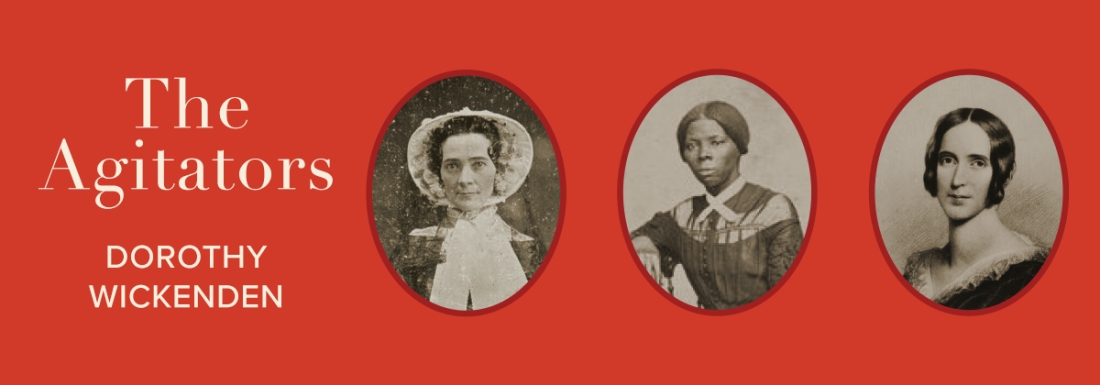All Library locations will be closed Wednesday, December 24 and Thursday, December 25, for Christmas.
In rescuing some 70 enslaved people from Maryland’s Eastern Shore in the 1850s, shepherding them north along the Underground Railroad, Harriet Tubman made regular stops in Auburn, New York, just a few miles from the Erie Canal. There, she entrusted escapees to two crucial, if lesser-known, figures in the abolitionist and women’s rights movements, Frances Seward and Martha Coffin Wright.
In a discussion of her newly released book The Agitators, author Dorothy Wickenden explores the lives and historic contributions of these three unlikely collaborators – their committed activism, the toll it took on their families, and its lasting effects on the country.
Tubman became an African American icon, known as the “Moses of her people.” Seward was the wife of William H. Seward, who would serve as U.S. secretary of state under Abraham Lincoln. She kept her radicalism private while acting as a political advisor, pressing her husband to persuade Lincoln to move on emancipation. Wright, a Quaker mother of seven, worked with Elizabeth Cady Stanton and Susan B. Anthony to organize women’s rights and anti-slavery conventions across New York State.
The Library program spotlighting the three women commemorates Women’s History Month in March.
Wickenden is executive editor of The New Yorker, also writing for the magazine and moderating its weekly podcast The Political Scene. She previously was national affairs editor at Newsweek and executive editor at The New Republic and is the author of one earlier book, Nothing Daunted: The Unexpected Education of Two Society Girls in the West.
